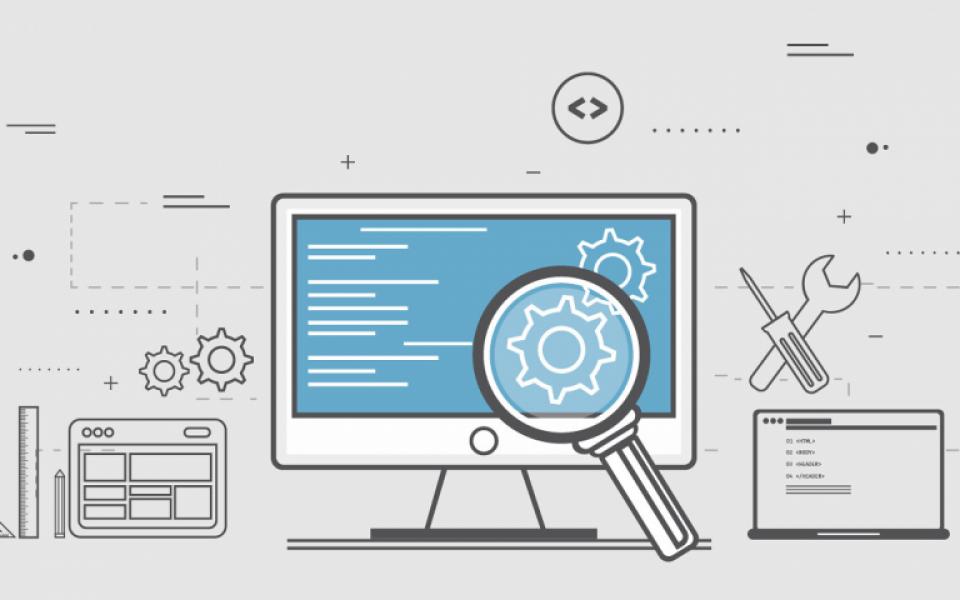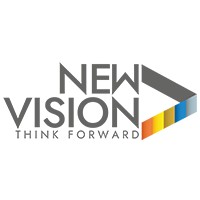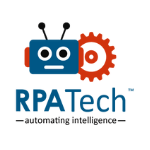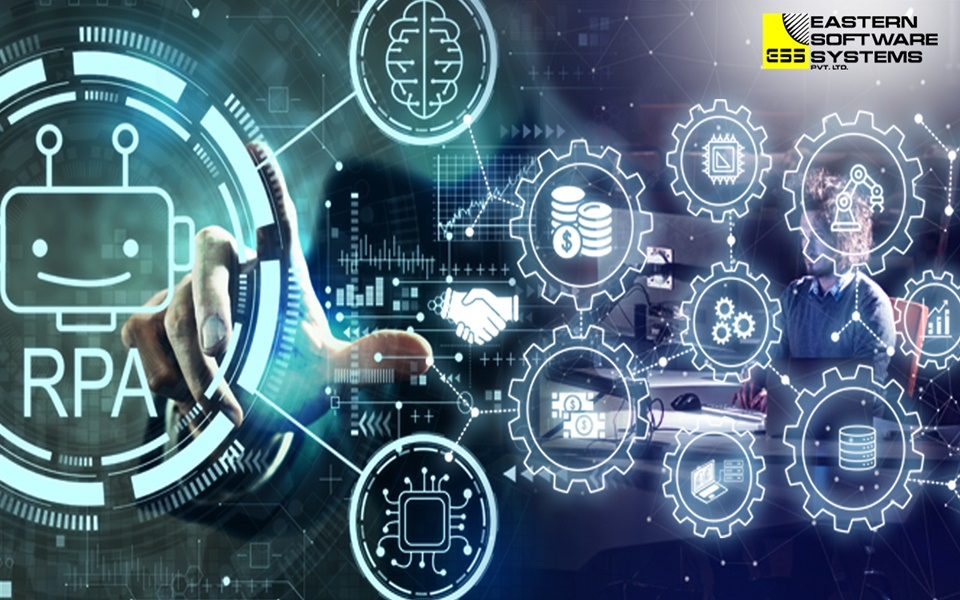Test Automation and RPA functional overview
Test automation is the process that involves the usage of automation tools (Open source and Commercial) to develop test scripts based on use cases, help maintain test cases, execute them and finally analyze the test results. Software test automation ensures faster releases as processes are automated without much manual interference and delivers quality releases.
RPA is best suited for enterprise business process automation to improve the operational efficiency of the processes as bots are employed instead of humans. The wider adoption of RPA can be attributed to increased efficiency with minimal human intervention as a software bot is trained to perform tasks and interprets actions seamlessly
An overview of Test automation
Software test automation is an important aspect of DevOps-driven projects that facilitates continuous delivery and continuous testing. Test automation helps to assist developers and testers automate repetitive tasks to save time and increase test coverage. QA engineers use various automation tools and frameworks to validate the system’s functionality. If QA engineers were to execute these tests manually, the test results may take longer hours, be prone to errors, and might sometimes overlook bugs. Automation testing allows QA engineers to run the tests over different environments and devices repeatedly. As the QA and testing ecosystem has evolved, automation testing has become a critical aspect of quality assurance and delivers many benefits for enterprises.
1. Reduces cost:
Companies leveraging automated software testing bring down the overall cost, resource utilization, and time and lowers overall QA costs up to 60%.
2. Faster Testing:
Automated testing needs little to no human intervention. Once set up, multiple tests may be executed at once, and teams can have detailed reports in less time and reduce QA cycle times by 80%
3. Faster feedback cycle:
Using test automation tools, QA engineers can provide feedback to the DevOps department faster and enhance the overall efficiency.
4. Faster time-to-market:
As the testing process is automated, automation engineers have more time to create better and more in-depth tests that increase the test coverage. Thus, time is saved with continuous testing, leading to shorter product launches and invariably results in faster time-to-market.
An overview of RPA
RPA is the process of imitating an end-user on the app or software and performing the same tasks automatically. Artificial Intelligence and Machine Learning algorithms are implemented for the process, which learns the patterns from the actions of the users. RPA is achieved when bots with custom and diverse capabilities, adapt as per the user actions are then convert them into actions. These actions are then executed when required and without the user. Organizations use RPA due to its wide range of business benefits.
1. Operational efficiency:
RPA bots do not need a break and can work 24/7 and 365 days a year
2. Time-efficient:
RPA-based bots are highly efficient in bringing down the time taken to complete the designated tasks
3. Accuracy in results:
RPA bots deliver with a high accuracy rate and work without fatigue like any other machine-led tasks
4. Cost-effective:
RPA can reduce operational costs by automating key IT processes
5. Secure and reliable:
In the case of RPA, information is exchanged through secure paths. Hence, the chances of any data leakage or security breaches are minimal
6. Data and analytics:
Analytical data offered by RPA is error-free and can be considered for future business planning
Some Use Cases of Test Automation
Banking
• Authenticate customer login through both valid and invalid data
• Ensure that the user can update the balance and make deposits into the new account
• Verify that authentication works as expected and users are redirected to the dashboard
• Ensure all the links of different modules are functional
Insurance
• Ensure that customers can enroll in the policy benefits
• Verify that the application or software can make changes to the customer’s details and that the same is updated in the database
• Verify that users can cancel the policy
• Ensure that users can make payments through all modes like NEFT, Cheque method, etc.
• Verify that the claims are settled successfully.
Healthcare
• Ensure that members can be enrolled, reinstated and terminated.
• Verify that the correct details like account number or address are chosen for a member, service provider, and broker.
• Since healthcare apps generate reports across different formats such as HTML, PDF, and text, verify that the report is easily accessible to the respective users.
Some Use Cases of RPA
Banking
• Optimize critical processes such as replacement of lost or stolen cards, charge processing billing and payments, and blocking cards on customer requests
• Automate the regular operations of the KYC process and improve security and compliance
• Improve the client verification process by fetching and displaying the required customer service documents on a single screen
Insurance
• Verify the NCB slab by referring to the status from previous policies
• Collect data from all the necessary sources to process claims at a faster pace
• Read and process data for details and update the database regularly
Healthcare
• Schedule patient and doctor appointments
• Collect data from each stakeholder and strengthen collaboration between internal and external stakeholders. Centralize the process to perform efficient auto-billing that promotes cost and time savings.
• Ensure the overall system is compliant with all the industry standards by identifying and removing the exceptions using bots
• Optimize claims processing by tracing and auditing payments using simplified bots
Differences Between Test Automation and RPA
S. No
|
Area of difference
|
Test Automation
|
RPA
|
| 1. |
Purpose |
Effectively used for QA and testing. The main purpose of test automation is to ensure if software or hardware is working as per the predefined expectations and does not have any bugs or errors. |
RPA is not dedicatedly used for automating business processes. RPA automates critical and mundane business processes, making them error-free and efficient. |
| 2. |
Scope |
Test automation works for a single application, and its features |
RPA may be implemented for both the product as well as business processes. The overall flow may also run simultaneously in different applications |
| 3. |
Technology |
Test automation delivers results based on what the QA engineer writes test scripts. Test scripts are used as instructions for performing the tests |
RPA bots are AI and ML-driven technologies that continue to learn from human interactions and perform process optimization tasks based on this learning in the form of a bot |
| 4. |
Operational efficiency |
Running test automation helps to increase effectiveness and ensures faster releases of quality products |
Improves operational efficiency of the business as all the back-end processes are automated using bots |
| 5. |
Scalability |
Test automation may be executed across different environments like QA, Production, and Performance |
RPA requires a single production environment |
| 6. |
Key benefits |
• Automates repetitive test cases
• Faster bug detection and resolution
• Improves test coverage |
• Removes manual and repetitive tasks
• Delivers enhanced customer experience
• Process compliance standards |
| 7. |
Major tools |
The choice of tools for test automation varies as per the project requirements. Some important automation testing tools are Selenium, UiPath, Appium, and RFT |
Trending RPA tools are UiPath, Blue Prism, and Automation Anywhere |
| 8. |
Ease of Usage |
Based on the requirements and the tools used in the task, test automation may require a higher level of technical knowledge. Further, the technical skills needed to use the advanced test automation tools depend on the level of tests to be automated |
Most of the RPA tools are designed in a way that engineers who implement the automation do not have to be program savvy |
Conclusion
Test automation and RPA are used by enterprises to ensure faster and quality releases and automate business processes, respectively. These strategies revolve around automation and may sound similar but are different based on various factors and modes of working. Test automation aims to automate the test scenarios, while RPA strives to automate the business processes. In the case of RPA, processes are automated by mimicking the tasks and actions performed by a human by leveraging AI and ML. Further, test automation works on test scripts created over strict rules, focuses on different software QA and testing scenarios, and leverages various automation testing tools. Leverage test automation and RPA testing services from next-gen testing services providers for superior outcomes.
Courtesy by:
TestingXperts Blog




























